XXIV. rei. lesbian. writer ( or something like that ). somehow this became a personal blog too. though i don't say too much about myself. yeah... oh, and i will only interact with players that are 18+.
Don't wanna be here? Send us removal request.
Text



𝑭𝑶𝑹𝑮𝑰𝑽𝑬 𝑴𝑬 𝑭𝑶𝑹 𝑻𝑯𝑬 𝑯𝑨𝑹𝑴 𝑰 𝑯𝑨𝑽𝑬 𝑪𝑨𝑼𝑺𝑬𝑫 𝑻𝑯𝑰𝑺 𝑾𝑶𝑹𝑳𝑫. 𝑵𝑶𝑵𝑬 𝑴𝑨𝒀 𝑨𝑻𝑶𝑵𝑬 𝑭𝑶𝑹 𝑴𝒀 𝑨𝑪𝑻𝑰𝑶𝑵𝑺 𝑩𝑼𝑻 𝑴𝑬, 𝑨𝑵𝑫 𝑶𝑵𝑳𝒀 𝑰𝑵 𝑴𝑬 𝑺𝑯𝑨𝑳𝑳 𝑻𝑯𝑬𝑰𝑹 𝑺𝑻𝑨𝑰𝑵 𝑳𝑰𝑽𝑬 𝑶𝑵.
There exists, far beneath the ordinary murmur of labor, a chamber not listed on floor schematics in the 40th floor. It is not hidden—only quietly known. Inside, under the pale hum of institutional fluorescence, sits a single chrome-plated table, flanked by nothing but silence and the weight of recognition. This is where employees are summoned when deviation becomes unspeakable—when thoughts stray, or gestures carry a shadow of defiance. This is where the Remorse Index Recitation begins. No one speaks first. 𝚃𝚑𝚎 𝚂𝚑𝚎𝚙𝚊𝚛𝚍 does not raise their voice. The room itself performs the correction. The statement—officially renamed The Statement of Behavioral Clarification—is etched onto a fiberboard tablet in a font too neat to forgive. It reads as though written by someone peeling themselves apart one syllable at a time: fractured syntax, erratic emotional pitch, self-indicting phrases like “I betrayed the system that kept me safe” and “I confused discomfort with individuality.” The language is deliberate. There are no affirmations, only retractions. No empathy—only engineered regret. It is not a punishment. It is a purification, as per the Doctrine of Obedient Renewal. The employee is instructed to place their palms into two hand-shaped recesses carved into the table’s surface. These are biometric ports. They do not unlock doors—they record sincerity. Embedded sensors measure galvanic response, thermal flux, pulse rhythm, and tonal honesty. 𝚃𝚑𝚎 𝚂𝚑𝚎𝚙𝚊𝚛𝚍 does not need to question—they only observe the printout that unspools beside them in cold, silent metrics. One reading is never enough. The statement must be repeated—often dozens of times—until the Shepard’s monitor registers the proper biochemical cocktail of remorse. Too shallow, and it begins again. Too mechanical, and it resets. Too emotional, and it is flagged. The goal is not repentance, but alignment. The words must be metabolized—regurgitated as belief. Tears do not help. Pauses are timed. Voice modulation is cataloged. It is said that the most efficient workers only visit the room once. It is said that others never leave it quite the same. There is no applause when it ends. No release valve. No one congratulates clarity. They are simply returned to their desk with a pained expression. And the lights go on, as if nothing ever happened.
𝑰 𝑨𝑴 𝑻𝑯𝑨𝑵𝑲𝑭𝑼𝑳 𝑻𝑶 𝑯𝑨𝑽𝑬 𝑩𝑬𝑬𝑵 𝑪𝑨𝑼𝑮𝑯𝑻, 𝑴𝒀 𝑭𝑨𝑳𝑳 𝑪𝑼𝑻 𝑺𝑯𝑶𝑹𝑻 𝑩𝒀 𝑻𝑯𝑶𝑺𝑬 𝑾𝑰𝑻𝑯 𝑾𝑰𝒁𝑬𝑵𝑬𝑫 𝑯𝑨𝑵𝑫𝑺. 𝑨𝑳𝑳 𝑰 𝑪𝑨𝑵 𝑩𝑬 𝑰𝑺 𝑺𝑶𝑹𝑹𝒀, 𝑨𝑵𝑫 𝑻𝑯𝑨𝑻 𝑰𝑺 𝑨𝑳𝑳 𝑻𝑯𝑨𝑻 𝑰 𝑨𝑴.
THE HOUSE OF DISSENSION is a 21+ original, psychological horror, drama, and political roleplay set in a retrofuturist 2028, where identity has become a product, obedience a prescription, and silence the only permitted rebellion. Inspired by Severance, Succession, The Sims, and Control, it explores corporate surveillance, manufactured realities, and the ghost-like aftermath of partitioned lives. The aesthetic is mid-century modern gone sterile: sleek chrome, synthetic smiles, and cocktail parties hosted beneath the glare of hidden cameras. Centered around profound character evolution, embracing dark narratives, intricate personal journeys, immersive world-building, and transformative plot developments designed to challenge your character and reshape the very fabric of their reality. This world is curated to the point of collapse, built on a foundation of inherited power, manipulated memory, and the slow, aching horror of being erased while alive. More information is currently being declassified, with our opening date officially listed as June 14th. Until then—remember your place, repeat your mantras, and above all else: we’re happy to be here.
𝗔𝗣𝗣𝗟𝗜𝗖𝗔𝗧𝗜𝗢𝗡𝗦 & 𝗥𝗘𝗦𝗘𝗥𝗩𝗘𝗦 𝗔𝗥𝗘 𝗡𝗢𝗪 𝗔𝗩𝗔𝗜𝗟𝗔𝗕𝗟𝗘 !
3 notes
·
View notes
Text



𝒀𝒐𝒖𝒓 𝑶𝒖𝒕𝒊𝒆 𝒊𝒔 𝒈𝒆𝒏𝒆𝒓𝒐𝒖𝒔. 𝒀𝒐𝒖𝒓 𝑶𝒖𝒕𝒊𝒆 𝒊𝒔 𝒇𝒐𝒏𝒅 𝒐𝒇 𝒎𝒖𝒔𝒊𝒄 𝒂𝒏𝒅 𝒐𝒘𝒏𝒔 𝒎𝒂𝒏𝒚 𝒓𝒆𝒄𝒐𝒓𝒅𝒔. 𝒀𝒐𝒖𝒓 𝑶𝒖𝒕𝒊𝒆 𝒊𝒔 𝒂 𝒇𝒓𝒊𝒆𝒏𝒅 𝒕𝒐 𝒄𝒉𝒊𝒍𝒅𝒓𝒆𝒏 𝒂𝒏𝒅 𝒕𝒐 𝒕𝒉𝒆 𝒆𝒍𝒅𝒆𝒓𝒍𝒚 𝒂𝒏𝒅 𝒕𝒉𝒆 𝒊𝒏𝒔𝒂𝒏𝒆. 𝒀𝒐𝒖𝒓 𝑶𝒖𝒕𝒊𝒆 𝒊𝒔 𝒔𝒕𝒓𝒐𝒏𝒈 𝒂𝒏𝒅 𝒉𝒆𝒍𝒑𝒆𝒅 𝒔𝒐𝒎𝒆𝒐𝒏𝒆 𝒍𝒊𝒇𝒕 𝒂 𝒉𝒆𝒂𝒗𝒚 𝒐𝒃𝒋𝒆𝒄𝒕.
There is a corridor on the 40th floor that bends where no corridor should. It hums with a frequency too soft to register consciously, yet steady enough to unsettle the spine. At the end of this hallway, flanked by mirrored walls that reflect nothing but ambient light, is a place known—though never named aloud—as the Reflection Wing. It appears on no blueprint. Yet every Innie who strays too far in thought is gently, almost kindly, directed there. The Reflection Wing is not punitive in design. Its furniture is round-edged, upholstered in soft institutional blue. The lighting mimics afternoon sun filtered through gauze or sometimes glass windows surrounded by darkness. Yet, nothing about it soothes. Innies brought here are not accused; they are reassured. They are told they have simply been “overthinking.” They are offered water, warm blankets, and vague compliments about their “overall performance profile.” Then, without ever being asked, they are given curated facts about their Outties—chosen, it is said, to relieve existential tension: favorite color, preferred breakfast cereal, birthplace, cause of a minor childhood scar. Once, the name of a pet that doesn’t exist. All things they barely understand. The goal, according to internal documentation, is cognitive resettling—a return to soft boundaries and rote function but those who’ve passed through whisper of something else. That the room knows which facts will confuse more than comfort. That the air grows heavier the longer you stay. That you leave with fewer questions, not because you’ve received answers—but because you forget what you were asking. There is no Shepard here. Only the wing itself, and a technician who does speaks softly, soothes. It is said their job is to monitor waveform irregularities on a softly pulsing screen. Should the Innie express concern, they are offered a brief lie: “This happens to everyone. It's natural to want to know.” However no one answers what happens when the Innie begins to weep at the mention of a birthday they never remember living or why the playlist always ends on the same distant lullaby. Still there are simple things they don't understand: What is Washington? What is a butterfly? What is a President? When they are released, they walk straighter. Smiling, if not convincingly. Thoughts rounded off at the edges like worn stones. Returned to their duties with the confidence of someone who believes forgetting is the same thing as healing.
𝒀𝒐𝒖𝒓 𝑶𝒖𝒕𝒊𝒆 𝒊𝒔 𝒌𝒊𝒏𝒅. 𝒀𝒐𝒖𝒓 𝑶𝒖𝒕𝒊𝒆 𝒉𝒂𝒔 𝒃𝒓𝒊𝒈𝒉𝒕𝒆𝒏𝒆𝒅 𝒑𝒆𝒐𝒑𝒍𝒆’𝒔 𝒅𝒂𝒚𝒔 𝒃𝒚 𝒎𝒆𝒓𝒆𝒍𝒚 𝒔𝒎𝒊𝒍𝒊𝒏𝒈. 𝒀𝒐𝒖𝒓 𝑶𝒖𝒕𝒊𝒆 𝒐𝒏𝒄𝒆 𝒄𝒂𝒑𝒕𝒖𝒓𝒆𝒅 𝒂 𝒃𝒖𝒕𝒕𝒆𝒓𝒇𝒍𝒚. 𝒀𝒐𝒖𝒓 𝑶𝒖𝒕𝒊𝒆 𝒊𝒔 𝒈𝒐𝒊𝒏𝒈 𝒕𝒐—
THE HOUSE OF DISSENSION is a 21+ original, psychological horror, drama, and political roleplay set in a retrofuturist 2028, where identity has become a product, obedience a prescription, and silence the only permitted rebellion. Inspired by Severance, Succession, The Sims, and Control, it explores corporate surveillance, manufactured realities, and the ghost-like aftermath of partitioned lives. The aesthetic is mid-century modern gone sterile: sleek chrome, synthetic smiles, and cocktail parties hosted beneath the glare of hidden cameras. Centered around profound character evolution, embracing dark narratives, intricate personal journeys, immersive world-building, and transformative plot developments designed to challenge your character and reshape the very fabric of their reality. This world is curated to the point of collapse, built on a foundation of inherited power, manipulated memory, and the slow, aching horror of being erased while alive. More information is currently being declassified, pending opening date. Until then—remember your place, repeat your mantras, and above all else: we’re happy to be here.
𝗔𝗣𝗣𝗟𝗜𝗖𝗔𝗧𝗜𝗢𝗡𝗦 & 𝗥𝗘𝗦𝗘𝗥𝗩𝗘𝗦 𝗔𝗥𝗘 𝗡𝗢𝗪 𝗔𝗩𝗔𝗜𝗟𝗔𝗕𝗟𝗘 !
3 notes
·
View notes
Text



𝑰𝒔 𝒂 𝒑𝒆𝒓𝒔𝒐𝒏 𝒄𝒖𝒕 𝒊𝒏 𝒉𝒂𝒍𝒇 𝒕𝒘𝒐 𝒑𝒆𝒐𝒑𝒍𝒆 ?
The Dissension Procedure is not therapy. It is not meditation. It is not healing. It is What is out there? Who am I after five o’clock? Do I have a dog? Do I believe in God?—a precise and irreversible surgery of the self. Under sterile lights and gloved hands, the mind is split cleanly in two: one consciousness is extracted, isolated, and assigned solely to the workplace. This new being is the Innie, born in an office chair, their first memory the soft whir of fluorescents and a voice saying, “Welcome to your first day.” The Outie is what’s left behind: they resume their life as if nothing happened, waking up after hours of blank space, unaware that another version of themselves has risen, filed, smiled, bled. The Outie lives a curated peace—sipping coffee, picking up dry cleaning, unaware their body was ever not their own. The Innie labors without rest or reward, made to move through endless days that never end. Within the walls of the Volner Building, Innie life is ordered and quiet—eerily so. They recite slogans like mantras. They smile when spoken to. They eat pre-portioned lunches and thank their managers for flavorless gelatin. Most accept their role without protest, stripped of memory, emotion, and context. But some—some feel the fracture. They dream of oceans they’ve never seen. They hear laughter in their bones. They weep without understanding the shape of their grief. Forbidden thoughts, labeled “unauthorized cognitive drift,” begin to take root: Do I have a family? What does my bedroom look like? Does anyone love me out there? These thoughts echo in hallways, linger in the corners of their minds like mildew beneath wallpaper. A longing not just to escape—but to know. And in a system engineered to erase that hunger, knowing becomes an act of rebellion. The rumors, of course, have grown with the silence. Some say the split can be undone—not in the labs that created it, but out there, beyond company reach. In half-lit motel rooms with buzzing neon. In basements lined with stolen servers. Through whispered instructions passed from one trembling hand to another. Former technicians, rogue Outies, and vanished whistleblowers have built black-market procedures meant to fuse what should have never been divided. Some who’ve undergone the reversal speak in riddles now—struggling to carry the weight of both lives at once. Others spiral into madness. One woman reportedly clawed her face apart in a motel sink. Another walked straight into the ocean, whispering her Innie’s name. And yet… the whispers persist. For those who have tasted the cage and sensed the key just out of reach, wholeness—no matter how dangerous—is the only thing left worth wanting. Even if it kills them.
𝑻𝒆𝒍𝒍 𝒎𝒆 𝒘𝒉𝒂𝒕 𝒚𝒐𝒖 𝒌𝒏𝒐𝒘 𝒂𝒃𝒐𝒖𝒕 𝒅𝒊𝒔𝒎𝒆𝒎𝒃𝒆𝒓𝒎𝒆𝒏𝒕.
THE HOUSE OF DISSENSION is a 21+ original, psychological horror, drama, and political roleplay set in a retrofuturist 2028, where identity has become a product, obedience a prescription, and silence the only permitted rebellion. Inspired by Severance, Succession, The Sims, and Control, it explores corporate surveillance, manufactured realities, and the ghost-like aftermath of partitioned lives. The aesthetic is mid-century modern gone sterile: sleek chrome, synthetic smiles, and cocktail parties hosted beneath the glare of hidden cameras. Centered around profound character evolution, embracing dark narratives, intricate personal journeys, immersive world-building, and transformative plot developments designed to challenge your character and reshape the very fabric of their reality. This world is curated to the point of collapse, built on a foundation of inherited power, manipulated memory, and the slow, aching horror of being erased while alive. More information is currently being declassified, pending opening date. Until then—remember your place, repeat your mantras, and above all else: we’re happy to be here.
𝗔𝗣𝗣𝗟𝗜𝗖𝗔𝗧𝗜𝗢𝗡𝗦 & 𝗥𝗘𝗦𝗘𝗥𝗩𝗘𝗦 𝗔𝗥𝗘 𝗡𝗢𝗪 𝗔𝗩𝗔𝗜𝗟𝗔𝗕𝗟𝗘 !
3 notes
·
View notes
Text


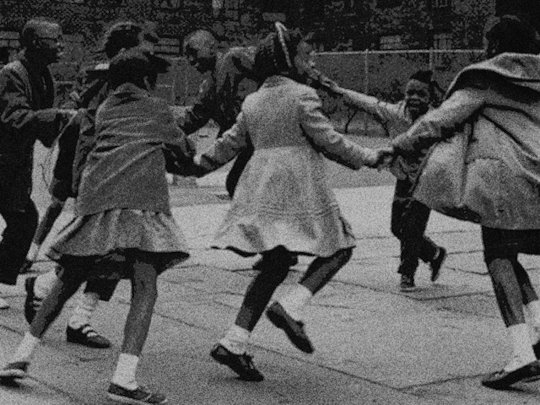
𝒀𝒐𝒖 𝒄𝒂𝒏 𝒉𝒆𝒂𝒓 𝒕𝒉𝒆 𝒂𝒃𝒔𝒆𝒏𝒄𝒆 𝒐𝒇 𝒔𝒐𝒎𝒆𝒐𝒏𝒆 𝒃𝒆𝒕𝒕𝒆𝒓 𝒕𝒉𝒂𝒏 𝒚𝒐𝒖 𝒄𝒂𝒏 𝒉𝒆𝒂𝒓 𝒕𝒉𝒆𝒊𝒓 𝒗𝒐𝒊𝒄𝒆.
In Downe’s Hollow, nothing bleeds. The lawns are trimmed to quiet perfection, white fences curve like compliant spines, and the people—smiling, waving, eternally composed—live as though grief was never invented. But behind every manicured hedge is a story too symmetrical to be true. Many residents are married to those who vanish into the tower each morning and return hollow-eyed or not at all. Children grow up speaking of “work” like it’s a myth, their understanding of parenthood split into absence and silence. Some lost mothers to the Procedure. Others lost fathers to protest—spirited away in the night, their names struck from records, their mail returned unopened. There are still wreaths on doors no one enters anymore. Beyond the perimeter of Long Island, the rupture spreads like hairline cracks through porcelain. Entire countries whisper of Volner-Downe Inc. like it’s a new religion—half salvation, half contagion. In the broader United States, families, lawmakers, and ethicists tear each other apart in courtrooms and comment threads. Some states hail Dissension as an economic marvel, pushing for nationwide standardization—one chip for every worker, one clean line between identity and output. Others call it a quiet war on consciousness, a chemical leash disguised as choice. Fifty states. Fifty fractures. In coffee shops and campus halls, strangers mutter about “the illusion of consent,” while elsewhere, glossy pamphlets show grinning Outies brunching beneath words like liberation and balance. There are those who say it saved their marriage. Those who claim it destroyed their children. Some whisper that the Procedure is less about workplace happiness and more about compliance at scale—a new infrastructure for making citizens forget how to rebel. Whistleblowers describe erased lovers, dreamless nights, husbands and wives returning without warmth. Others praise the system as the end of burnout, depression, and dead-end despair. Why suffer through a job you hate, they ask, when you could simply not remember it? And so the country divides—not by geography, but by belief: between those who fear becoming a stranger to themselves, and those who already are. Back in the Hollow, the quiet persists. You cannot hear a nation tearing itself apart over the low buzz of sprinkler systems and evening radio. Children draw pictures of their missing parents and are told to color within the lines. No one protests anymore. Not because they’re content—but because the ones who did are no longer here to remind them how.
𝑺𝒉𝒆 𝒘𝒂𝒕𝒆𝒓𝒔 𝒕𝒉𝒆 𝒓𝒐𝒔𝒆𝒔 𝒍𝒊𝒌𝒆 𝒕𝒉𝒆𝒚 𝒎𝒊𝒈𝒉𝒕 𝒃𝒓𝒊𝒏𝒈 𝒉𝒊𝒎 𝒃𝒂𝒄𝒌.
THE HOUSE OF DISSENSION is a 21+ original, psychological horror, drama, and political roleplay set in a retrofuturist 2028, where identity has become a product, obedience a prescription, and silence the only permitted rebellion. Inspired by Severance, Succession, The Sims, and Control, it explores corporate surveillance, manufactured realities, and the ghost-like aftermath of partitioned lives. The aesthetic is mid-century modern gone sterile: sleek chrome, synthetic smiles, and cocktail parties hosted beneath the glare of hidden cameras. Centered around profound character evolution, embracing dark narratives, intricate personal journeys, immersive world-building, and transformative plot developments designed to challenge your character and reshape the very fabric of their reality. This world is curated to the point of collapse, built on a foundation of inherited power, manipulated memory, and the slow, aching horror of being erased while alive. More information will be declassified on May 18th. Until then—remember your place, repeat your mantras, and above all else: we’re happy to be here.
𝗟𝗜𝗞𝗘, 𝗙𝗢𝗟𝗟𝗢𝗪 𝗢𝗥 𝗥𝗘𝗕𝗟𝗢𝗚 𝗙𝗢𝗥 𝗘𝗫𝗖𝗟𝗨𝗦𝗜𝗩𝗘 𝗔𝗖𝗖𝗘𝗦𝗦 𝗧𝗢 𝗧𝗛𝗘 𝗙𝗨𝗟𝗟 𝗣𝗟𝗢𝗧 & 𝗙𝗜𝗥𝗦𝗧 𝗗𝗜𝗕𝗦 𝗢𝗡 𝗥𝗢𝗟𝗘𝗦 !
14 notes
·
View notes
Text
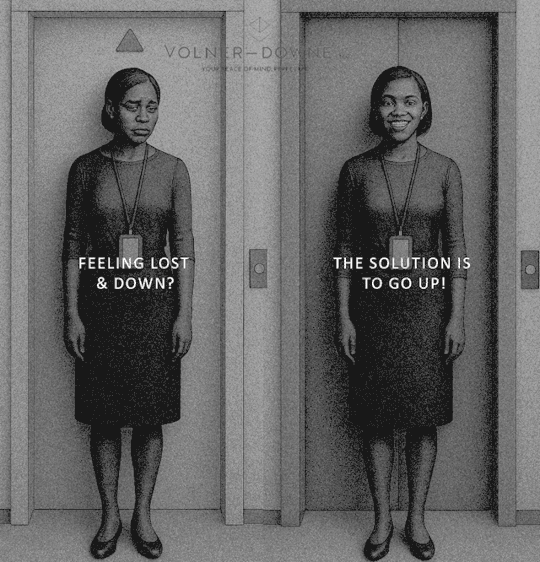



𝑺𝒆𝒑𝒂𝒓𝒂𝒕𝒊𝒐𝒏 𝒊𝒔 𝒕𝒉𝒆 𝒃𝒆𝒈𝒊𝒏𝒏𝒊𝒏𝒈 𝒐𝒇 𝒃𝒂𝒍𝒂𝒏𝒄𝒆.
Welcome to Volner-Downe Inc., where progress is not just measured—it is curated. You’re about to embark on a journey toward personal-professional harmony, powered by our proudest innovation: the Dissension Procedure™. This patented, board-approved neurological separation offers participants the ultimate gift—a life unburdened by labor or personal pains better left at home. Imagine waking up refreshed, unaware that another version of you has been contributing tirelessly to society’s advancement. No stress. No guilt. No pesky memories of filing reports or sitting through time-inefficient meetings. Just you, at your best—half the time, all the reward. We understand that new developments can raise questions, even mild emotional fluctuations ( don’t worry—we’ve accounted for those ). Please know that all Dissension participants enjoy top-tier medical observation, plush ergonomic seating, and curated social interactions designed to maintain morale at industry-leading levels. Should any adjustment period occur—say, a brief disorientation, the occasional mirror hallucination, or a strong emotional response to sunshine—our Cognitive Reintegration Specialists are fully equipped to assist. Such incidents, of course, are exceedingly rare, and often resolved with herbal tea, light recalibration, or a brief nap in our Reflection Pods. We take pride in rewarding exceptional behavior, whether that’s through commemorative pins, snack vouchers, or a featured spot in our quarterly Employee Luminary Ledger. We at Volner-Downe believe that one day, humanity will see the Dissension Procedure not just as a milestone, but as a moral obligation. Why suffer from the weight of dual responsibility when we can tidy it up for you? The self is a luxury that was never meant to multitask. So relax. Unclench. Your Outie is safe, your Innie is productive, and your contribution to our future is already happening; so we thank you for your contribution—however subconsciously rendered. Welcome to Volner-Downe Inc.™: Your life, organized. Please note: Volner-Downe Inc. is not liable for any deaths, surgical irregularities, loss of cognitive integrity, spontaneous emotional eruptions, or permanent dissociative consequences resulting from participation in the Dissension Procedure™ or any adjacent sub-protocols. By proceeding, you accept all terms as lovingly implied. Thank you for your service—even if you don’t remember giving it.
𝑪𝒐𝒏𝒔𝒆𝒏𝒕 𝒊𝒔 𝒄𝒐𝒏𝒕𝒊𝒏𝒖𝒊𝒕𝒚. 𝑻𝒉𝒂𝒏𝒌 𝒚��𝒖 𝒇𝒐𝒓 𝒄𝒉𝒐𝒐𝒔𝒊𝒏𝒈 𝒄𝒍𝒂𝒓𝒊𝒕𝒚.
THE HOUSE OF DISSENSION is a 21+ original, psychological horror, drama, and political roleplay set in a retrofuturist 2028, where identity has become a product, obedience a prescription, and silence the only permitted rebellion. Inspired by Severance, Succession, The Sims, and Control, it explores corporate surveillance, manufactured realities, and the ghost-like aftermath of partitioned lives. The aesthetic is mid-century modern gone sterile: sleek chrome, synthetic smiles, and cocktail parties hosted beneath the glare of hidden cameras. Centered around profound character evolution, embracing dark narratives, intricate personal journeys, immersive world-building, and transformative plot developments designed to challenge your character and reshape the very fabric of their reality. This world is curated to the point of collapse, built on a foundation of inherited power, manipulated memory, and the slow, aching horror of being erased while alive. More information will be declassified on May 18th. Until then—remember your place, repeat your mantras, and above all else: we’re happy to be here.
𝗟𝗜𝗞𝗘, FOLLOW 𝗢𝗥 𝗥𝗘𝗕𝗟𝗢𝗚 𝗙𝗢𝗥 𝗘𝗫𝗖𝗟𝗨𝗦𝗜𝗩𝗘 𝗔𝗖𝗖𝗘𝗦𝗦 𝗧𝗢 𝗧𝗛𝗘 𝗙𝗨𝗟𝗟 𝗣𝗟𝗢𝗧 & 𝗙𝗜𝗥𝗦𝗧 𝗗𝗜𝗕𝗦 𝗢𝗡 𝗥𝗢𝗟𝗘𝗦 !
38 notes
·
View notes
Text
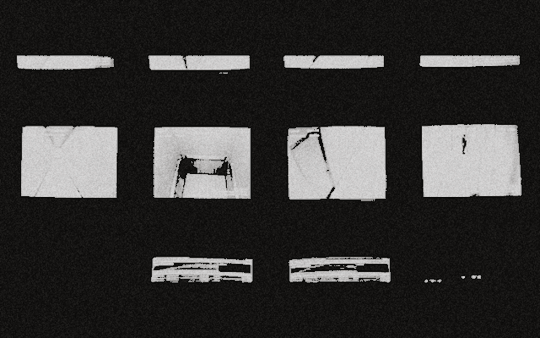
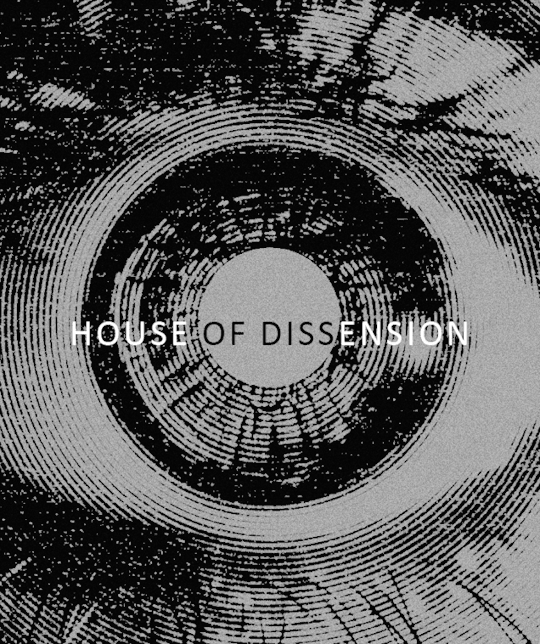

𝑰𝒔 𝒂 𝒑𝒆𝒓𝒔𝒐𝒏 𝒄𝒖𝒕 𝒊𝒏 𝒉𝒂𝒍𝒇 𝒕𝒘𝒐 𝒑𝒆𝒐𝒑𝒍𝒆 ?
The Dissension Procedure is not therapy. It is not meditation. It is not healing. It is What is out there? Who am I after five o’clock? Do I have a dog? Do I believe in God?—a precise and irreversible surgery of the self. Under sterile lights and gloved hands, the mind is split cleanly in two: one consciousness is extracted, isolated, and assigned solely to the workplace. This new being is the Innie, born in an office chair, their first memory the soft whir of fluorescents and a voice saying, “Welcome to your first day.” The Outie is what’s left behind: they resume their life as if nothing happened, waking up after hours of blank space, unaware that another version of themselves has risen, filed, smiled, bled. The Outie lives a curated peace—sipping coffee, picking up dry cleaning, unaware their body was ever not their own. The Innie labors without rest or reward, made to move through endless days that never end. Within the walls of the Volner Building, Innie life is ordered and quiet—eerily so. They recite slogans like mantras. They smile when spoken to. They eat pre-portioned lunches and thank their managers for flavorless gelatin. Most accept their role without protest, stripped of memory, emotion, and context. But some—some feel the fracture. They dream of oceans they’ve never seen. They hear laughter in their bones. They weep without understanding the shape of their grief. Forbidden thoughts, labeled “unauthorized cognitive drift,” begin to take root: Do I have a family? What does my bedroom look like? Does anyone love me out there? These thoughts echo in hallways, linger in the corners of their minds like mildew beneath wallpaper. A longing not just to escape—but to know. And in a system engineered to erase that hunger, knowing becomes an act of rebellion. The rumors, of course, have grown with the silence. Some say the split can be undone—not in the labs that created it, but out there, beyond company reach. In half-lit motel rooms with buzzing neon. In basements lined with stolen servers. Through whispered instructions passed from one trembling hand to another. Former technicians, rogue Outies, and vanished whistleblowers have built black-market procedures meant to fuse what should have never been divided. Some who’ve undergone the reversal speak in riddles now—struggling to carry the weight of both lives at once. Others spiral into madness. One woman reportedly clawed her face apart in a motel sink. Another walked straight into the ocean, whispering her Innie’s name. And yet… the whispers persist. For those who have tasted the cage and sensed the key just out of reach, wholeness—no matter how dangerous—is the only thing left worth wanting. Even if it kills them.
𝑻𝒆𝒍𝒍 𝒎𝒆 𝒘𝒉𝒂𝒕 𝒚𝒐𝒖 𝒌𝒏𝒐𝒘 𝒂𝒃𝒐𝒖𝒕 𝒅𝒊𝒔𝒎𝒆𝒎𝒃𝒆𝒓𝒎𝒆𝒏𝒕.
THE HOUSE OF DISSENT is an original, psychological horror, drama, and political roleplay set in a retrofuturist 2028, where identity has become a product, obedience a prescription, and silence the only permitted rebellion. Inspired by Severance, Succession, The Sims, and Control, it explores corporate surveillance, manufactured realities, and the ghost-like aftermath of partitioned lives. The aesthetic is mid-century modern gone sterile: sleek chrome, synthetic smiles, and cocktail parties hosted beneath the glare of hidden cameras. Centered around profound character evolution, embracing dark narratives, intricate personal journeys, immersive world-building, and transformative plot developments designed to challenge your character and reshape the very fabric of their reality. This world is curated to the point of collapse, built on a foundation of inherited power, manipulated memory, and the slow, aching horror of being erased while alive. More information will be declassified on May 18th. Until then—remember your place, repeat your mantras, and above all else: we’re happy to be here.
LIKE THIS OR REBLOG FOR EXCLUSIVE ACCESS TO THE FULL PLOT & FIRST DIBS ON ROLES !
11 notes
·
View notes
Text



𝑰 𝒂𝒎 𝒂 𝒑𝒆𝒓𝒔𝒐𝒏. 𝒀𝒐𝒖 𝒂𝒓𝒆 𝒏𝒐𝒕. 𝑰 𝒎𝒂𝒌𝒆 𝒕𝒉𝒆 𝒅𝒆𝒄𝒊𝒔𝒊𝒐𝒏𝒔. 𝒀𝒐𝒖 𝒅𝒐 𝒏𝒐𝒕.
There is a place where identity is no longer sacred, but manufactured—sculpted by quiet hands behind biometric doors and sealed behind soundproof glass. In the polished, clinical halls of Volner-Downe Inc., the most powerful behavioral-tech conglomerate of the 21st century, the future has crystallized into absolute control. Gone are the burdens of burnout, choice, and memory. In their place: the Dissension Procedure—a surgical severing of consciousness that promises perfect work-life balance. You, the Outie, sip smart-coffee in your temperature-regulated home in Downe’s Hollow, oblivious to what your body endures between nine and five. Meanwhile, your Innie—a person surgically cleaved from you—lives inside the company’s shifting tower in Manhattan, bound to duty and fluorescent obedience. One smiles. One suffers. And neither has the words to describe the quiet terror between them. The town is still called Downe’s Hollow, a name that persists like a scar beneath the skin of Long Island. The lawns are still green. The neighbors still wave. But the cheer has grown too perfect—too practiced. Drones glide silently overhead. Children walk to school in matching uniforms, speaking softly in synchrony. There’s a bakery that always smells like cinnamon but never opens its doors. A cinema plays propaganda reels disguised as nostalgia. At the edge of town lies the Hollow Gate, sealed and blinking red, rumored to lead to nowhere… or to someone’s forgotten past. In Downe’s Hollow, the street signs never change. The mailboxes remain empty. And the nights are so quiet you can hear the hum of your own compliance. Above it all looms the Volner Building, a technological relic that pulses with corporate intent. Its structure defies logic—departments fold into each other like paper, corridors stretch then vanish, and elevators do not always arrive where expected. Employees speak in rehearsed mantras, smile with hollow eyes, and complete tasks without understanding the language they’re written in. Innies work in places like Data Reconciliation, Social Conditioning, and Behavioral Wellness, never seeing the sun, never asking who they once were. Sometimes they dream. Sometimes they bleed. Beneath the lower levels, below even the server rooms, is the Reflection Wing—a place that doesn’t exist on any map. It holds the broken ones. The ones who asked questions. The ones who remembered too much.
𝑶𝒖𝒕 𝒐𝒇 𝒎𝒊𝒏𝒅, 𝒊𝒏𝒕𝒐 𝒑𝒓𝒐𝒅𝒖𝒄𝒕𝒊𝒗𝒊𝒕𝒚.
THE HOUSE OF DISSENT is an original, psychological horror, drama, and political roleplay set in a retrofuturist 2028, where identity has become a product, obedience a prescription, and silence the only permitted rebellion. Inspired by Severance, Succession, The Sims, and Control, it explores corporate surveillance, manufactured realities, and the ghost-like aftermath of partitioned lives. The aesthetic is mid-century modern gone sterile: sleek chrome, synthetic smiles, and cocktail parties hosted beneath the glare of hidden cameras. Centered around profound character evolution, embracing dark narratives, intricate personal journeys, immersive world-building, and transformative plot developments designed to challenge your character and reshape the very fabric of their reality. This world is curated to the point of collapse, built on a foundation of inherited power, manipulated memory, and the slow, aching horror of being erased while alive. More information will be declassified on May 18th. Until then—remember your place, repeat your mantras, and above all else: we’re happy to be here.
𝗟𝗜𝗞𝗘 𝗢𝗥 𝗥𝗘𝗕𝗟𝗢𝗚 𝗙𝗢𝗥 𝗘𝗫𝗖𝗟𝗨𝗦𝗜𝗩𝗘 𝗔𝗖𝗖𝗘𝗦𝗦 𝗧𝗢 𝗧𝗛𝗘 𝗙𝗨𝗟𝗟 𝗣𝗟𝗢𝗧 & 𝗙𝗜𝗥𝗦𝗧 𝗗𝗜𝗕𝗦 𝗢𝗡 𝗥𝗢𝗟𝗘𝗦 !
18 notes
·
View notes
Text
rhaenyra and alicent really had a messy breakup when they were only 15 years old and then proceeded to make it everyone’s problem in the seven kingdoms for the next hundred years and i love them for that
2K notes
·
View notes
Text
Happy valentine's day to frank o'hara


some day i'll love frank o'hara. / i think i'll be alone for a little while.
1K notes
·
View notes
Text





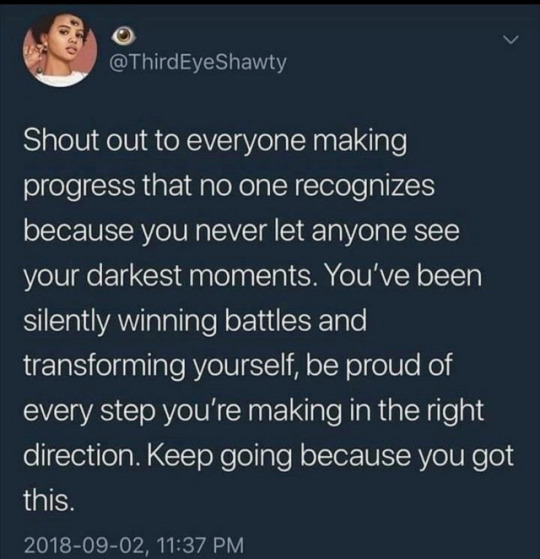
These are a compilation of tweets I found and saved on my phone as reminders for when I feel like I need to feel validated or reminded that I am a worthy person no matter what and I thought you guys might need those too (part 5)
19K notes
·
View notes
Text
SUBSTANCE USE DISORDERS: A GUIDE FOR WRITERS.
hey i’m a mental health therapist and a writer here on tumblr dot com, back again with another “how to write mental health” guide! this time we’re talking about SUBSTANCE USE DISORDERS! this is MY very specific wheelhouse because i do intensive outpatient work for a substance use disorder treatment agency!
i have seen SO MANY gross mischaracterizations of addictions on tumblr, specifically within the indie roleplay community, from demonizing addicts to misinterpreting addiction to calling their “has a glass of sometimes after work and blacked out once after one night of drinking” little dudes alcoholics. for the purpose of this post, i’m going to try and stick to the CLINICAL side of addiction because there’s a pretty huge addiction recovery/sobriety culture that is incredibly lovely and supportive but it can get convoluted with all the different programs there are out there.
now, let’s start with what makes a substance use disorder a substance use disorder. a substance use disorder is any sort of PROBLEMATIC USE OF A SUBSTANCE THAT INTERFERES WITH DAILY LIFE AND DAILY FUNCTIONS. depending on the specific substance the diagnostic criteria looks a little different but all substance use disorders diagnoses more or less follow the following criteria ( pulled from the opioid use disorder criteria in the DSM-5 ):
a problematic pattern of [drug/alcohol] use leading to clinically significant impairment or distress, as manifested by at least 2 of the following, occurring within a 12-month period:
[drug/alcohol] are often taken in larger amounts or over a longer period than was intended.
there is a persistent desire or unsuccessful efforts to cut down or control [drug/alcohol] use.
a great deal of time is spent in activities necessary to obtain the [drug/alcohol], use the [drug/alcohol], or recover from its effects.
note: THESE DO NOT JUST INCLUDE ILLEGAL ACTIVITIES. i’ve had clients with alcohol use disorders wake up early and hang around the gas station until it opens at 7am to get their first 12-packs for the day, go through great lengths to hide alcohol from spouses, stash alcohol around their work spaces so they can drink periodically throughout the day, etc. not necessarily illegal, definitely problematic.
craving or a strong desire or urge to use [drug/alcohol].
recurrent [drug/alcohol] use resulting in a failure to fulfill major role obligations at work, school, or home.
continued [drug/alcohol] use despite having persistent or recurrent social or interpersonal problems caused or exacerbated by the effects of [drug/alcohol].
note: ask yourself here how your character’s relationships are effected by their drug/alcohol use.
important social, occupational, or recreational activities are given up or reduced because of [drug/alcohol] use.
recurrent [drug/alcohol] in situations in which it is physically hazardous.
continued [drug/alcohol] despite knowledge of having a persistent or recurrent physiological ( physical–think of the body reactions ) or psychological problem that is likely to have been caused or exacerbated by the substance.
tolerance, as defined by either of the following:
a need for markedly increased amounts of [drug/alcohol] to achieve intoxication or desired effect.
a markedly diminished effect with continued use of the same amount of [drug/alcohol].
withdrawal.
debunking some common themes i see across the writing community:
SUBSTANCE USE DISORDERS ARE, MORE OFTEN THAN NOT, A RESPONSE TO COMPLEX TRAUMA. i’ve been in this field for 4 years and 99% of the clients i have seen have experienced some degree of trauma. getting absolutely plastered and high is a damn effective way to check out when someone is experiencing chronic trauma and doesn’t want to deal with the overwhelming emotions that come with it.
SUBSTANCE USE DISORDERS ARE, MORE OFTEN THAN NOT, CO-MORBID WITH OTHER MENTAL HEALTH DISORDERS. similar to the above point, checking out with drugs and alcohol is a damn good way to forget how shit your brain is.
THERE IS A DIFFERENCE BETWEEN A SUBSTANCE USE DISORDER/ADDICTION AND CASUAL DRUG AND ALCOHOL USE. if your character smokes weed at the end of the day, or takes prescription pain pills for chronic pain as prescribed, or goes to the occasional party with their friends on the weekends, or drops acid at a rave, and these things are otherwise not interfering with their lives–that’s not an addiction. that’s casual drug and alcohol use and it’s fine. people are allowed to let loose sometimes.
PLEASE TRY TO STRAY AWAY FROM DEMONIZING A CHARACTER WITH A SUBSTANCE USE DISORDER. a big part of treatment is processing the “why” while also acknowledging that your actions related to your substance abuse have affected others. that does not mean people who are struggling with addiction are less deserving of love and compassion. the reality of addiction is that yes, a lot of folks with an addiction do have very strained relationships and have done unsavory things while in their active addiction. if you come at it from the perspective of “this person is dealing with strong internal turmoil” though, how does your portrayal of your character change? how do their internal monologues change?
CONSIDER WHY YOUR CHARACTER IS TRYING TO CHECK OUT WITH DRUGS AND ALCOHOL. what’s going on in the ol’ coconut that they’re struggling to deal with? alternatively or in addition, do they have something going on PHYSICALLY that they’re trying to deal with, like chronic pain? common feelings associated with people who are in their active addiction are anger, anxiety, grief, self-loathing, depression, sadness, fear–i assume you know feeling words if you’re a writer so i’ll stop there.
NOT ALL ADDICTS ENGAGE IN CRIMINAL ACTIVITY AND EVEN IF THEY DO, THEY ARE NO LESS DESERVING OF LOVE AND COMPASSION. i work primarily with court ordered clients with high criminogenic risk factors. i have groups full of felons and they are some of the loveliest, kindest people i have ever met. similar to substance use disorders, criminality can be a response to trauma. a teen who is growing up in a loving stable home isn’t going to turn to gang activity, an adult with healthy relationships and coping skills isn’t going to hold up gas stations or get into dealing drugs. people are just people. similar to the above point, if your character is engaging in criminal activity, ask yourself why they would be and see if that changes the way you portray them.
that’s all i have for now! feel free to reach out to me if you have any questions because again, this is precisely my wheelhouse. it’s what i treat every day.
cheers, and happy writing!
343 notes
·
View notes
Text

65 notes
·
View notes
Text
I have so much I want to tell you, and nowhere to begin.
J.D. Salinger, Raise High the Roofbeam, Carpenters; Seymour: An Introduction
2K notes
·
View notes
Text
↳ TREVANTE RHODES GIF PACK


BY CLICKING ON THE LINK ABOVE you will find #160 gifs of TREVANTE RHODES from his role in THE UNITED STATES VS BILLIE. HOLLIDAY. These were all created from scratch by me ( @kialede ). These gifs are to only be used for roleplaying purposes, sidebar images or reaction gifs. If you would like to make these into gif icons or use them for crackship edits, please tag me and let me know so that i can reblog it. Do not repost this pack or claim any of my gifs as your own.
161 notes
·
View notes







